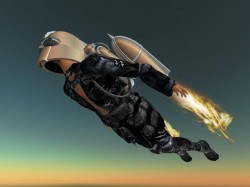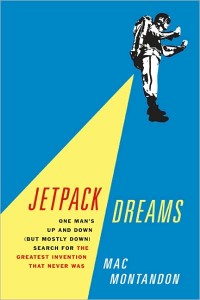ABC NEWS: Daredevil Felix Baumgartner shattered the speed of sound and broke three records today after he took a leap from 24 miles above the Earth on the edge of space. At one point during his freefall, the 43-year-old Austrian was traveling at 833 mph or Mach 1.24, a feat that normally could only be accomplished by a supersonic jet, or perhaps the space shuttle. Aside from being the only man to achieve a supersonic skydive, the extreme athlete also broke two other records, including the highest exit from a platform at 128,000 feet and the highest free-fall without a drogue parachute, which was measured at 119,846 feet. The nerves-of-steel Baumgartner said he felt he was in trouble at one point during his 4 minute, 20 second freefall when his visor began to fog up. He also then went into a spin. He soon regained his vertical velocity and was able to pull his parachute, landing approximately nine minutes after millions tuned in online, and held their breath, as he made history. MORE
LOS ANGELES TIMES: these are surely times for curiosity, anxiety and wonder: We live in an age where technology has made a 23-mile space jump distinguishable from an attempt at suicide, and where an energy drink company makes aggressive ventures into space while the United States puts its shuttle program into a museum. Pause for a moment to consider that latter fact. In a recent essay for The Baffler, anthropologist David Graeber posed a challenging question about the “sense of disappointment” around technology that he thought had fallen over the United States since the glory days of the Apollo program. “Where, in short, are the flying cars?” he wrote. “Where are the force fields, tractor beams, teleportation pods, antigravity sleds, tricorders, immortality drugs, colonies on Mars, and all the other technological wonders any child growing up in the mid-to-late twentieth century assumed would exist by now?” Graeber’s essay was a protest against capitalism, which he thought was hindering scientific growth rather than fostering it. All the best, newest technologies  invented since the 1970s, he reasoned, were “technologies of simulation” like the iPads and iPhones that made watching Baumgartner’s space jump possible — rather than technologies that would make real achievements, like the jumps themselves, easier. MORE
invented since the 1970s, he reasoned, were “technologies of simulation” like the iPads and iPhones that made watching Baumgartner’s space jump possible — rather than technologies that would make real achievements, like the jumps themselves, easier. MORE
THE BAFFLER: Why did the projected explosion of technological growth everyone was expecting—the moon bases, the robot factories—fail to happen? There are two possibilities. Either our expectations about the pace of technological change were unrealistic (in which case, we need to know why so many intelligent people believed they were not) or our expectations were not unrealistic (in which case, we need to know what happened to derail so many credible ideas and prospects). Most social analysts choose the first explanation and trace the problem to the Cold War space race. Why, these analysts wonder, did both the United States and the Soviet Union become so obsessed with the idea of manned space travel? It was never an efficient way to engage in scientific research. And it encouraged unrealistic ideas of what the human future would be like. Some of those science fiction fantasies (at this point we can’t know which ones) could have been brought into being. For earlier generations, many science fiction fantasies had been brought into being. Those who grew up at the turn of the century reading Jules Verne or H.G. Wells imagined the world of, say, 1960 with flying machines, rocket ships, submarines, radio, and television—and that was pretty much what they got. If it wasn’t unrealistic in 1900 to dream of men traveling to the moon, then why was it unrealistic in the sixties to dream of jet-packs and robot laundry-maids? MORE
 RELATED: Industrial capitalism has fostered an extremely rapid rate of scientific advance and technological innovation—one with no parallel in previous human history. Even capitalism’s greatest detractors, Karl Marx and Friedrich Engels, celebrated its unleashing of the “productive forces.” Marx and Engels also believed that capitalism’s continual need to revolutionize the means of industrial production would be its undoing. Marx argued that, for certain technical reasons, value—and therefore profits—can be extracted only from human labor. Competition forces factory owners to mechanize production, to reduce labor costs, but while this is to the short-term advantage of the firm, mechanization’s effect is to drive down the general rate of profit. For 150 years, economists have debated whether all this is true. But if it is true, then the decision by industrialists not to pour research funds into the invention of the robot factories that everyone was anticipating in the sixties, and instead to relocate their factories to labor-intensive, low-tech facilities in China or the Global South makes a great deal of sense. MORE
RELATED: Industrial capitalism has fostered an extremely rapid rate of scientific advance and technological innovation—one with no parallel in previous human history. Even capitalism’s greatest detractors, Karl Marx and Friedrich Engels, celebrated its unleashing of the “productive forces.” Marx and Engels also believed that capitalism’s continual need to revolutionize the means of industrial production would be its undoing. Marx argued that, for certain technical reasons, value—and therefore profits—can be extracted only from human labor. Competition forces factory owners to mechanize production, to reduce labor costs, but while this is to the short-term advantage of the firm, mechanization’s effect is to drive down the general rate of profit. For 150 years, economists have debated whether all this is true. But if it is true, then the decision by industrialists not to pour research funds into the invention of the robot factories that everyone was anticipating in the sixties, and instead to relocate their factories to labor-intensive, low-tech facilities in China or the Global South makes a great deal of sense. MORE
RELATED: But as I thought about it, I realized that we’re going to be in big trouble once everybody has a jetpack.
- MID-AIR COLLISIONS AND/OR DEATH. How are they going to regulate this? If everybody’s just shooting into the air where there are no lanes, it’s gonna’ be raining blood pretty soon. I can’t even drive past a automobile accident without getting distracted; how am I going to walk around with people slamming into each other over my head?
- GRASS FIRES. I live in Texas. East Texas, where from about July to October, you’ll got to jail for lighting a match. There’s not way we can get through summer with guys laying down 4,000 degree flam bursts multiple times a day. Most of our towns would be ash by the afternoon.
- FUEL PRICES. Think auto fuel is expensive. Wait until you gotta’ fill up with jet fuel 9 times a day.
- DESCENT. I’ve yet to see any of these jetpack proponents show where exactly they’ve placed the parachute. That’s a big deal, right? What if you run out of fuel in mid-air or have engine failure? Descent really is the most important of flying, don’t you think?
- COPS. You think motorcycle cops are mean, now? Wait until you strap giant flashbang to their back and make the work even closer to the sun during summer. Everybody’s getting a ticket then, y’all. MORE
